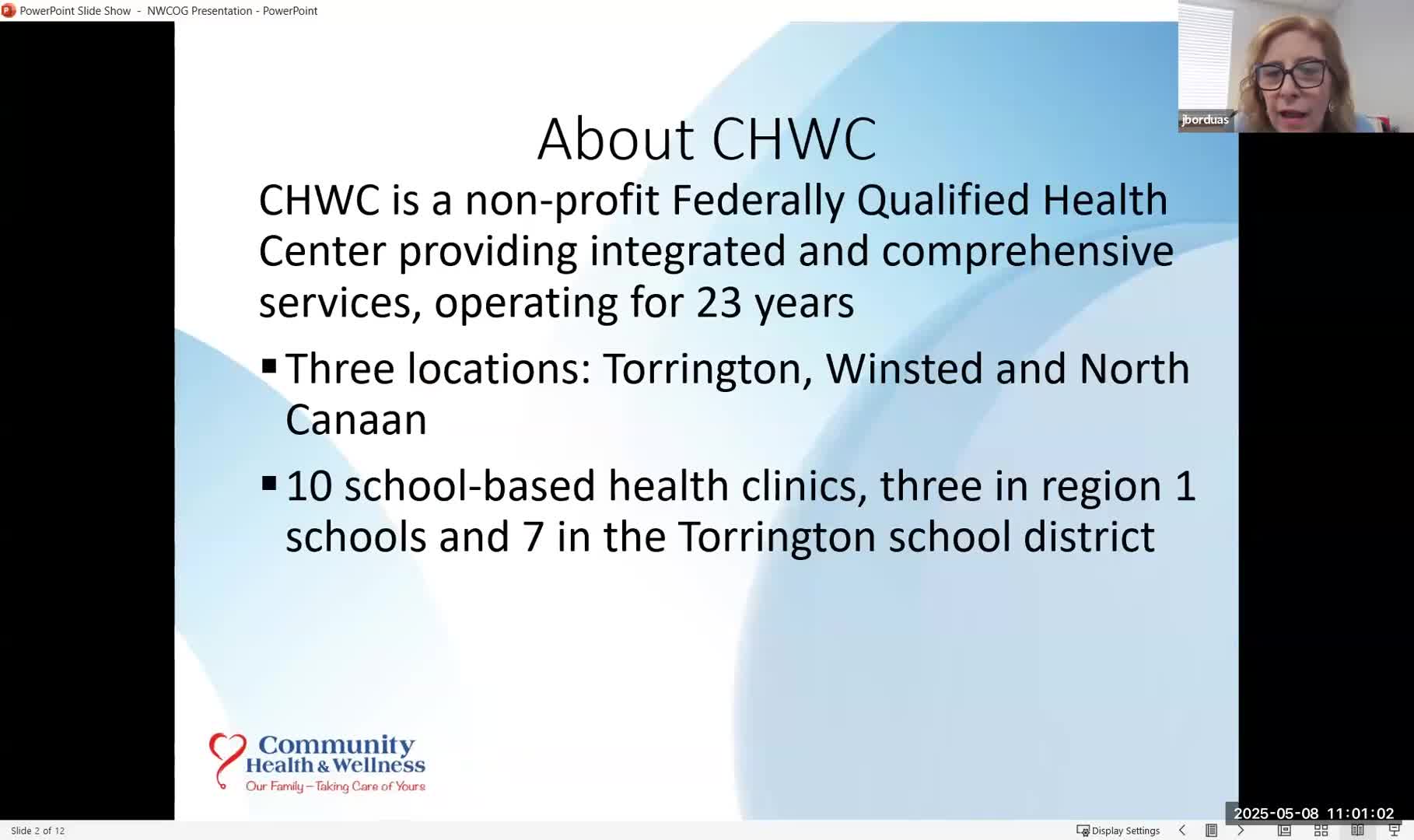Article not found
This article is no longer available. But don't worry—we've gathered other articles that discuss the same topic.
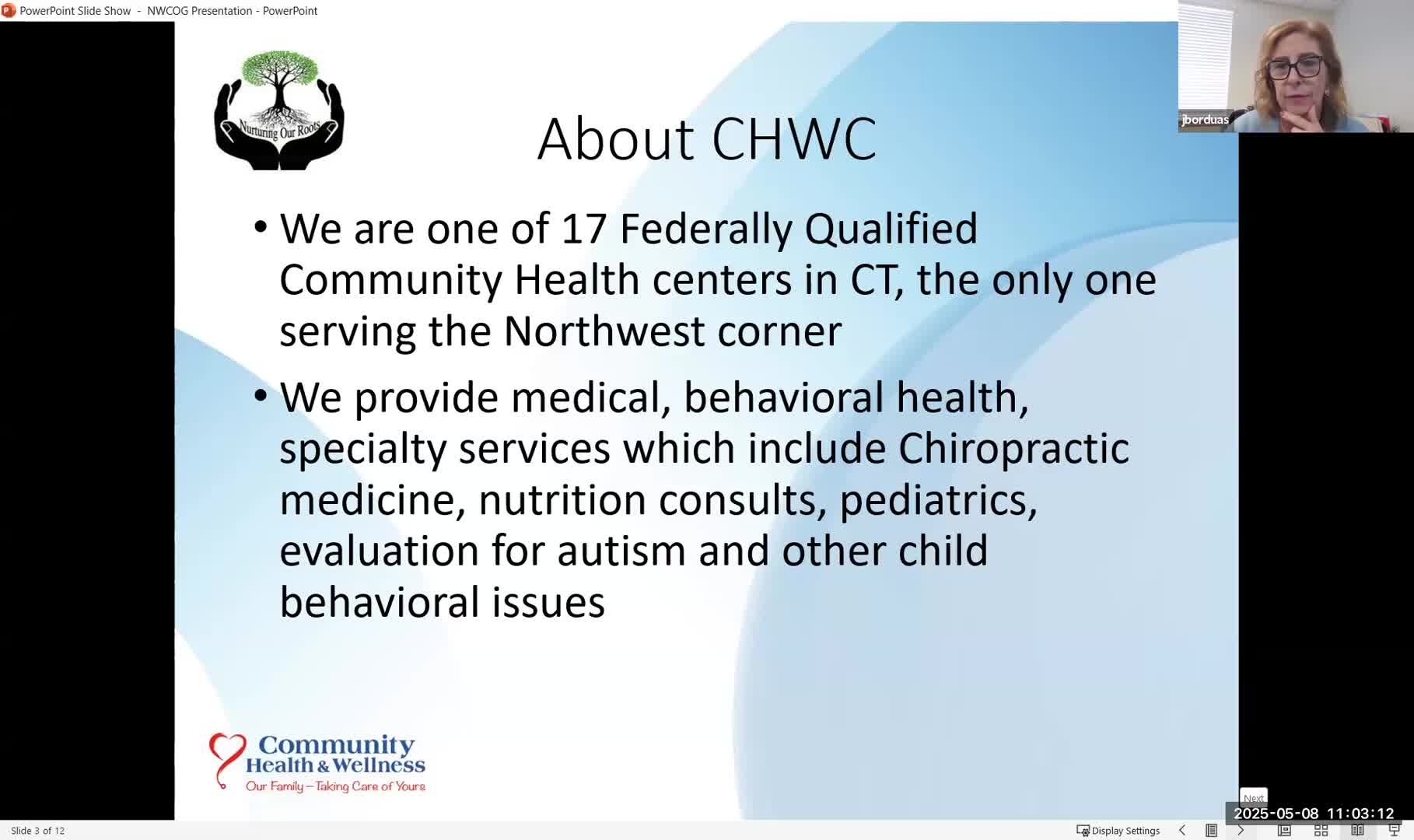
Votes at a glance: NHCOG approves brownfields applications, FY26–27 UPWP and several DOT amendments

UConn T2 offers free speed-feedback signs to towns; delivery and training coming
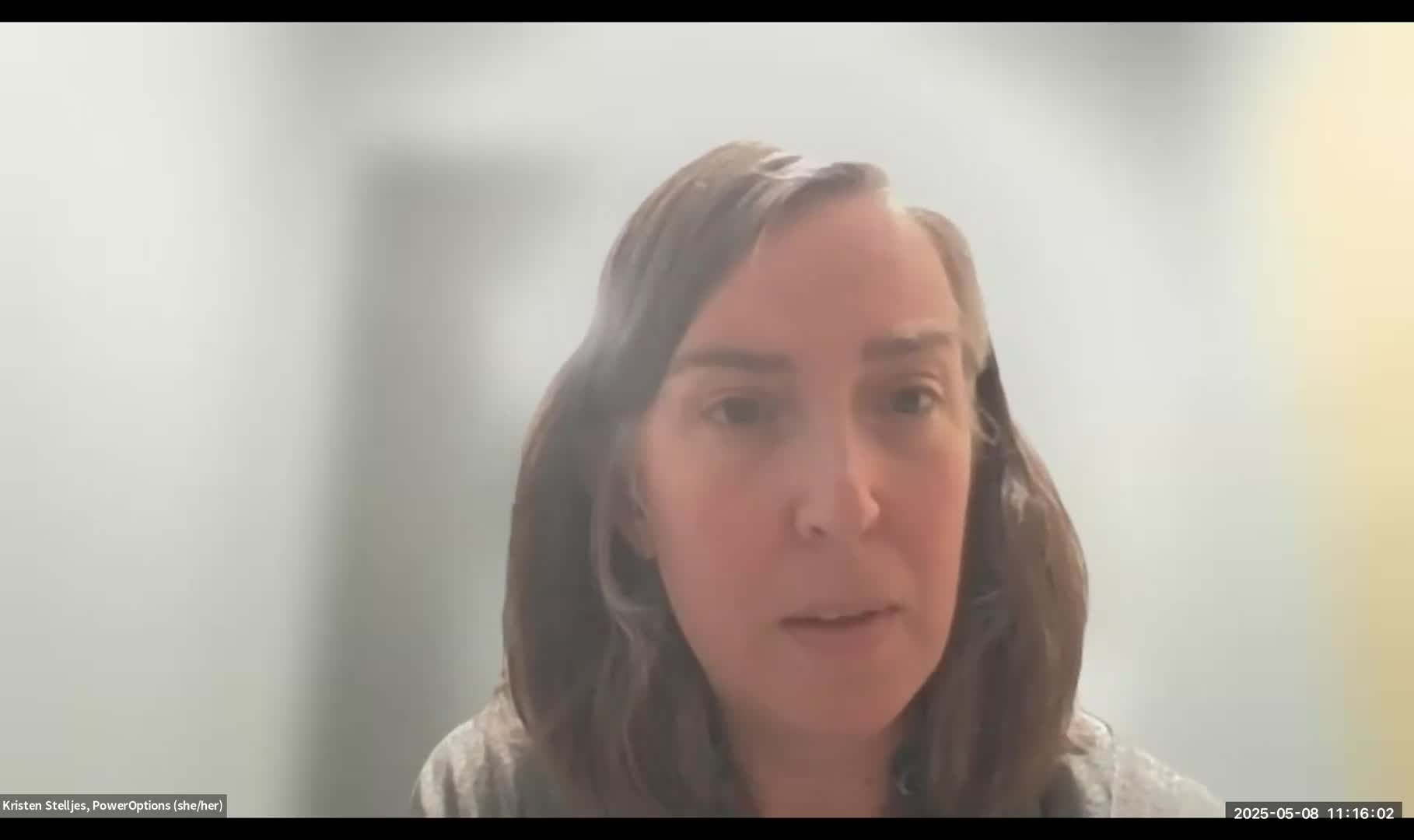
Power Options pitches no‑cost assessments, charging-as‑a‑service and solar procurement to NHCOG members
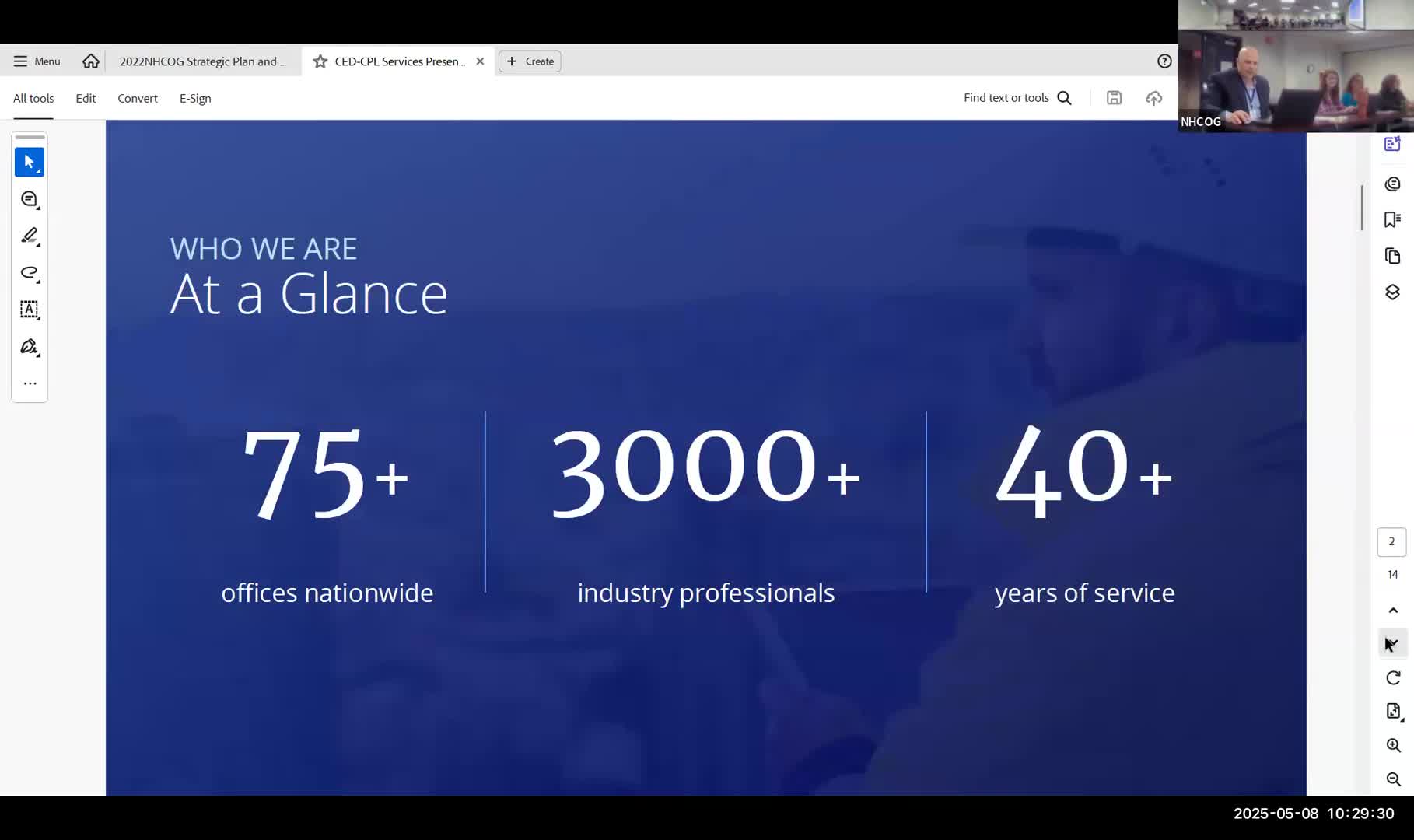
Colliers presents municipal engineering, grants and GIS services to NHCOG members
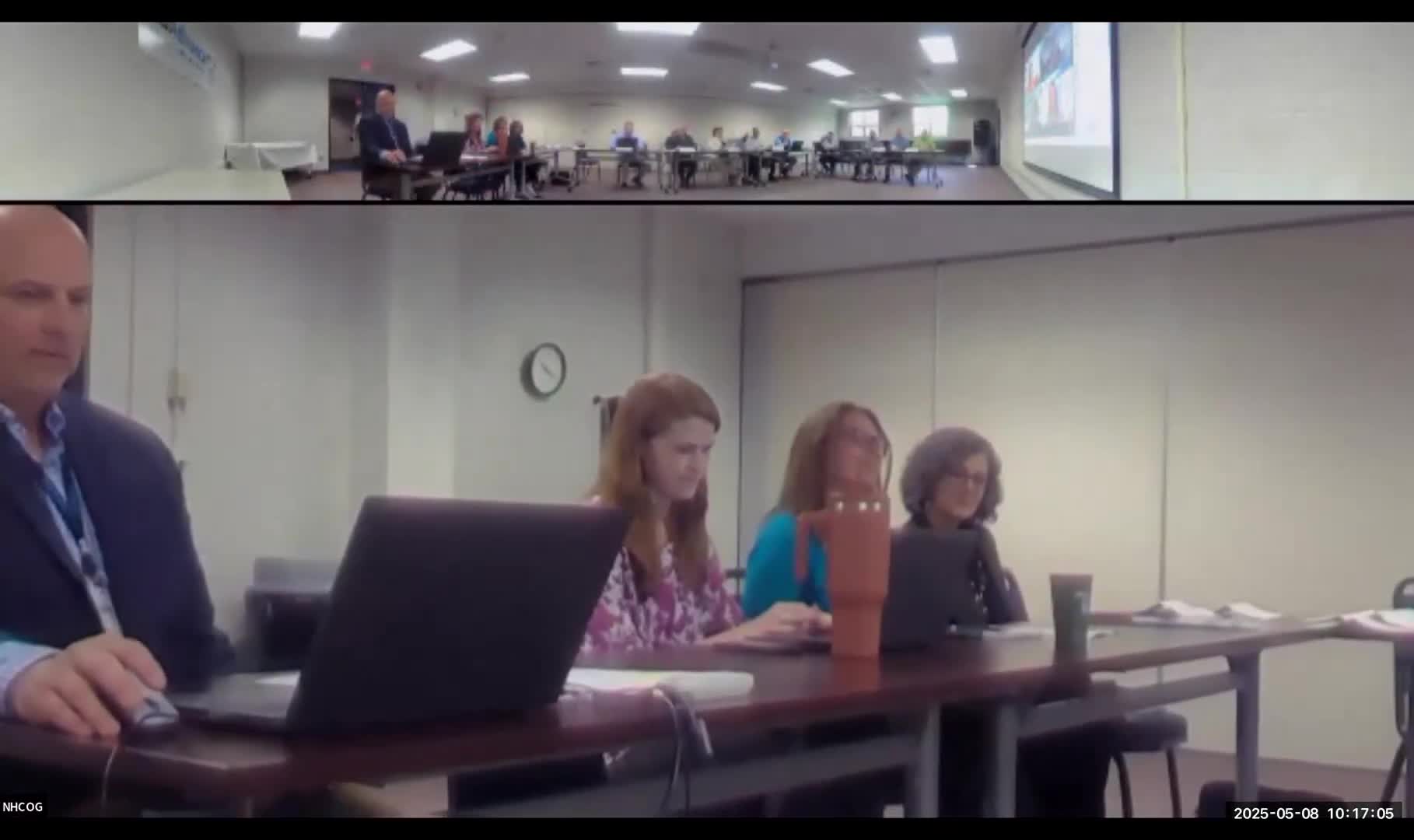
NHCOG director: staffing transition underway; GIS grant revised to include all 21 towns
